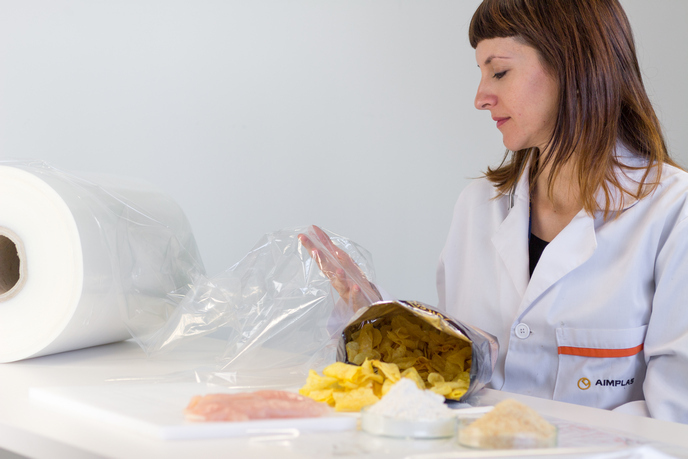Bio-based polymers and active coatings support greener food packaging
Multilayer polymer food packaging is the industry standard, enabling multiple, necessary functionalities not present in any one alone. However, the multiple bonded layers that act as a barrier to oxygen and moisture are difficult to recycle, and the synthetic plastics are not biodegradable, creating a growing end-of-life problem. Environmental concerns are shared by governments, industries and consumers, but finding recyclable and/or biodegradable monolayer alternatives with the same performance as conventional packaging has been quite challenging. With funding from the Bio-based Industries Joint Undertaking(opens in new window), a public-private partnership between the EU and industry, the ambitious REFUCOAT(opens in new window) project brought together 12 multidisciplinary partners all along the value chain from 5 EU countries to address the problem. REFUCOAT advanced the potential of two promising biodegradable biopolymers and also pushed the boundaries of what might be possible, demonstrating the use of bacteria-‘eating’ organisms (bacteriophages) in active coatings.
Breathing life into biopackaging leveraging microbes and natural metabolites
Many microorganisms are miniature production lines for polyhydroxyalkanoates (PHAs), fully biodegradable bioplastics with tuneable properties. The subject of intensive research, high molecular weight PHAs suitable for industrial food packaging applications had been elusive until now. REFUCOAT successfully harnessed microorganisms to valorise agri-food waste, leading to biodegradable PHA-based coatings for food packaging. Polyglycolic acid (PGA) is another biodegradable polymer, and its degradation product (and building block or monomer), glycolic acid, is a natural metabolite. Commonly used as a suture material, its high mechanical strength and excellent gas-barrier properties also make PGA attractive for food packaging applications. According to Javier Marzo Muñoz, project manager at AIMPLAS(opens in new window) and REFUCOAT coordinator, and Lorena Rodriguez, head of the packaging department at AIMPLAS and REFUCOAT principal investigator: “Currently, glycolic acid is produced by either the carbonylation of formaldehyde or the alkaline hydrolysis of chloroacetic acid using toxic or harmful substrates and/or harsh reaction conditions. In REFUCOAT, we developed a gold-based catalytic process to convert monoethylene glycol to PGA for greener production of this biodegradable biopolymer.” Finally, the team harnessed bacteria’s natural viral enemies to form innovative active barriers that prolong product shelf life. Preliminary data demonstrated encouraging inhibition of Salmonella proliferation with the bacteriophages. Further research will support approval by the European Food Safety Authority(opens in new window).
Supporting a sustainable midterm
For more than half a century, multilayer packaging, including non renewable resources such as aluminium, has kept perishables from perishing quickly. However, it is difficult and expensive to recycle, creating a significant environmental and economic burden. The diverse expertise of the REFUCOAT consortium was uniquely positioned for a thorough investigation into the development of fully recyclable, bio based, monolayer food packaging. “REFUCOAT developed promising, fully biodegradable bioPGA and PHA polymers for food packaging. Further, the use of bacteriophages as active coatings for food packaging demonstrated clear potential. In the context of these activities, our partners have obtained intermediate, more sustainable packaging solutions,” Marzo Muñoz summarises. As the team continues to pursue monolayer, bio-based packages that meet market requirements, scientists hope policies will encourage the greening of the current plastics value chain. REFUCOAT have prepared a policy brief(opens in new window) with specific recommendations to support this via increased sustainability, improved recycling processes and augmented investment in biomass and bio-based industries.







